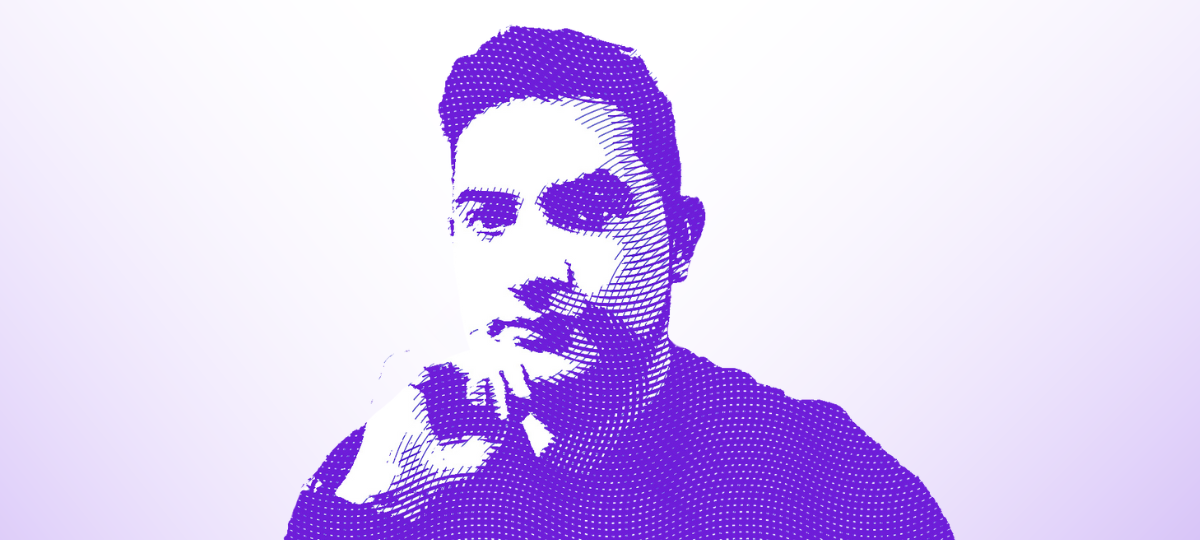Sebastian Martinez on Being a Competitive Programming Coach
By: Thomas De Moor
April 27, 2023 4 min read

Sebastian Martinez is a ServiceNow Technical Consultant at X-Team. In his spare time, he is also a competitive programming coach. In this interview, we discuss what competitive programming is, how it makes him a better programmer, and what it takes to coach a competitive programming team.


For those unfamiliar with competitive programming, can you explain what it is?
A competitive programming competition puts a developer's problem-solving prowess to the test. You're expected to create computer programs in response to a series of algorithmic challenges, under strict time limits. Efficiency is crucial. Your final score depends on both the accuracy of your program as well as how quickly you write your unique solution.
Competitive programming competitions have themes that range from graph theory to string algorithms to dynamic programming. Universities, coding clubs, or companies typically organize these competitions, and they can be both online or offline.
The International Collegiate Programming Contest (ICPC), Google's Code Jam, and Meta's Hacker Cup are a few examples of well-established competitive programming events.
What about you personally? How did you get into competitive programming?
I've always been passionate about programming. I enjoy learning new algorithms and solving problems. Plus, competitive programming is a really friendly and empowering environment. Its teams are always willing to learn, improve, and get better every day.
So it has two big benefits: You make new friends with common interests and you have rivals that push you to your limit and make you a better developer as a result. It's a hobby I really recommend. You'll become a better developer technically, but mentally too. You learn to find joy in solving difficult challenges.


How did your love for competitive programming turn into coaching it?
It was a natural progression. In 2017, I received an offer from the Dean of the Computer Science program at my university to become a professor of Algorithms and Data Structures. From that point on, I could identify the best talent from my classes and coach them through the fun journey of competitive programming contests during extra-curricular time.
What are some important lessons you learned coaching developers?
As a coach, you need to pay attention to the specific areas that are crucial for success. For example, it's important to have a strong foundation in fundamental skills like data structures, algorithms, and problem-solving strategies. Good ways to improve are doing coding exercises, reading theoretical material, and building small relevant programs. The speed at which you write your programs matters too.
It's also important to promote a collaborative learning environment, where students are encouraged to exchange new ideas, approaches, and problem-solving techniques. Students need to learn how to identify patterns within complex challenges and break down a big challenge into manageable subtasks.
Of course, the best way to get better is to participate regularly in competitions. As a coach, I try to encourage that as much as I can. I also give my students challenging assignments and remind them that it's not necessarily about winning the competition. It's about gathering new knowledge so they become better developers. Mistakes are a crucial part of that process.
And what specific lessons did you learn as a competitive programmer that benefited you while programming for work?
Efficiency is a top priority in competitive programming, just as it is in the workplace. Writing code efficiently, both in terms of time and space, increases the speed and dependability of applications.
Additionally, the problem-solving skills you learn in competitive programming are essential for success within any software development position. The ability to deconstruct multifaceted issues into their constituent parts, discern patterns, and create efficient algorithms are valuable skills to engage with any real-world application.
Of course, it's not just about app performance. It's about utility too. Competitive programming values quality and careful attention to detail. A single mistake can seriously impact your success in a competition.
Competitive programming also places value on consistency, perseverance, and commitment. These are all traits that are central components for overcoming challenges productively. They're invaluable in the workplace
What are some good resources to learn competitive programming?
It depends on your level of expertise, but good resources are websites like:
These provide a diverse range of problems and also regularly host coding competitions. They also give you editorial solutions and video tutorials that help you learn novel algorithms and programming concepts.
These are also a good number of books:
- Competitive Programming 3 by Steven and Felix Halim
- Programming Challenges by Steven Skiena and Miguel Revilla
- Introduction to Algorithms by Thomas H. Cormen
Personally, the tips and tricks in Competitive Programming 3 helped me solve most of the well-known challenges. It's an excellent book for programmers to prepare for a coding interview or challenge.
Do you want to join a company full of passionate developers like Sebastian? You can! X-Team is always looking for experienced software engineers. Create your candidate profile today.
TABLE OF CONTENTS



